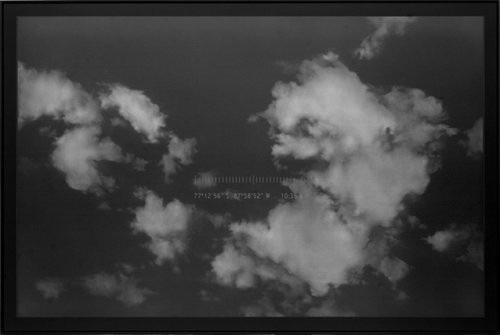Marcelo Moscheta
14 Nov 2008 - 31 Jan 2009
MARCELO MOSCHETA
"Latitude"
November 14th, 2008 - January 31st, 2009
Marcelo Moscheta’s landscapes call upon essential and intense emotions which have been long dormant in our culture but perhaps are endangered today. They relate to the sense of the sublime, difficult if not impossible to behold in today ́s world of fleeting values and digital images. “Latitude” speaks of the artist ́s amazement for past adventurous expeditions to remote undiscovered places, which in itself have become a sort of a myth to our global connected world, in which the far away has simply been removed as a possibility by our digital condition.
As an act of resistance, the artist reclaims a laborious craft and patient hand labour when producing his drawings. Yet, to think of these as merely romantic in content and academic in what technique concerns, completely misses the point and their level of complexity. These drawings either represent landscapes which we recognize as famous landscapes for they are a part of our culture – as in “Friedrich” – or, they were inspired by images of landscapes circulating in the media. They are assumedly a representation of a representation, nowhere to be found in reality. Except, they do more than just negating their referent, they also negate their own medium.
When Marcelo Moscheta bends over the surface of the PVC sheet a process of fixation, which in a metaphorical way reminds us of photography, occurs. Initially, a thick layer of graphite powder settles over the sensitive plastic support without however, attaching to it. Then, by erasing or removing it carefully with an eraser, the dark shadowy areas emerge, just as if in the dark room. Pointing in their production process to photography, Marcelo Moscheta ́s drawings finally look like paintings in the end.
A final negation takes place when Marcelo Moscheta attributes an erroneous coordinate system to his still and silent landscapes. Again, finding no correspondence in the real world – for the coordinates wrongly remits us to the South Pole – they bring about a sense of objectivity, opposing science to what we believed to be a purely romantic representation in the first place.
The coordinate code on the image, the image as a cultural code, and the tableau as a set of pure conventions, may serve to prove that in our hasty and virtual days taking a second, a third or a fourth look, delaying our judgement, may prove decisive.
Liliana Rodrigues
"Latitude"
November 14th, 2008 - January 31st, 2009
Marcelo Moscheta’s landscapes call upon essential and intense emotions which have been long dormant in our culture but perhaps are endangered today. They relate to the sense of the sublime, difficult if not impossible to behold in today ́s world of fleeting values and digital images. “Latitude” speaks of the artist ́s amazement for past adventurous expeditions to remote undiscovered places, which in itself have become a sort of a myth to our global connected world, in which the far away has simply been removed as a possibility by our digital condition.
As an act of resistance, the artist reclaims a laborious craft and patient hand labour when producing his drawings. Yet, to think of these as merely romantic in content and academic in what technique concerns, completely misses the point and their level of complexity. These drawings either represent landscapes which we recognize as famous landscapes for they are a part of our culture – as in “Friedrich” – or, they were inspired by images of landscapes circulating in the media. They are assumedly a representation of a representation, nowhere to be found in reality. Except, they do more than just negating their referent, they also negate their own medium.
When Marcelo Moscheta bends over the surface of the PVC sheet a process of fixation, which in a metaphorical way reminds us of photography, occurs. Initially, a thick layer of graphite powder settles over the sensitive plastic support without however, attaching to it. Then, by erasing or removing it carefully with an eraser, the dark shadowy areas emerge, just as if in the dark room. Pointing in their production process to photography, Marcelo Moscheta ́s drawings finally look like paintings in the end.
A final negation takes place when Marcelo Moscheta attributes an erroneous coordinate system to his still and silent landscapes. Again, finding no correspondence in the real world – for the coordinates wrongly remits us to the South Pole – they bring about a sense of objectivity, opposing science to what we believed to be a purely romantic representation in the first place.
The coordinate code on the image, the image as a cultural code, and the tableau as a set of pure conventions, may serve to prove that in our hasty and virtual days taking a second, a third or a fourth look, delaying our judgement, may prove decisive.
Liliana Rodrigues

